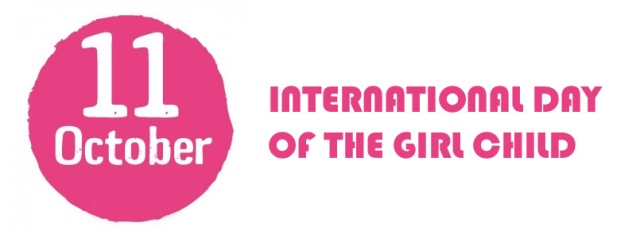
*Guest Post by UBC Student Ambassador, Karina Hsaio*
The Sustainable Development Agenda was created in 2016. This agenda introduced 17 different goals which are used as directives to eradicate global poverty. One of the crucial goals included is the need to achieve gender equality. International Day of the Girl is an important annual event that acknowledges the issue of gender inequality, promotes the empowerment of both women and men, and most importantly brings communities together.
Currently no country has successfully achieved gender equality; without the proper framework and policy implementations, women are made vulnerable to violence and discrimination. Countries also lack the relevant policies to prevent discrimination in the workplace, therefore women are still being treated unequally. Women worldwide earn less than men, for every dollar earned by men women earn 23 cents less. In politics, women represent a minority in national parliaments. When women’s contributions in the workplace are not valued equally, they are discouraged from entering the labour market or pursuing professional careers. Moreover, politics has long been viewed as a male profession; thus, without the participation of women, not only will this sector remain male dominated, policies related to the rights women will also lack the nuance necessary to achieve genuine equality.
 Education is one tool we can use to eradicate poverty and the problem of sexual violence. Women easily fall into the cycle of poverty due to lack of education qualifications. Without the equivalent skillsets required by the labour market, these women have limited choices when it comes to employment, and usually end up in temporary jobs. Not only are temporary jobs unstable, they also pay lower wages. Allowing women to participate in the market through stable employment will increase labour efficiency in companies; it allows the economy of a country to grow faster and stronger. Most importantly, a high percentage of women will be lifted from poverty.
Education is one tool we can use to eradicate poverty and the problem of sexual violence. Women easily fall into the cycle of poverty due to lack of education qualifications. Without the equivalent skillsets required by the labour market, these women have limited choices when it comes to employment, and usually end up in temporary jobs. Not only are temporary jobs unstable, they also pay lower wages. Allowing women to participate in the market through stable employment will increase labour efficiency in companies; it allows the economy of a country to grow faster and stronger. Most importantly, a high percentage of women will be lifted from poverty.
The inability to secure permanent employment is one of the main reasons that women continue to rely on their husbands for financial support. Additionally, if the wife is also a victim of domestic abuse she may decide to remain silent for fear of financial insecurity. Educated women are employable women, and employable women are independent women.
But the empowerment of women and girls is insufficient for socio-cultural change – men and boys also need to be part of the conversation. Communities need to acknowledge the fact that gender equality is a fundamental human right. Men and boys are important actors in process of achieving gender equality because gender equality affects everyone.
When men and women are viewed as equal, the labour market will have a greater chance of achieving equal pay. Healthy relationships between both genders can only be achieved if mutual respect is developed. It is important to remember that the push towards societal change in gender equality does not mean pinpointing a specific culprit. Numerous factors contribute to creation of gender inequality, and it is the responsibility of the whole community to correct gender stereotypes and unfair behavior.
Other than promoting gender equality through the discussions in UN general assembly and hosting annual events like International Day of the Girl, the United Nations also promotes gender equality at the local level. To enable relevant skill development, UN Women supports computer training programs in South Sudan and India. Economic empowerment is promoted by encouraging women to start their own businesses. For example, in a Guatemalan village, women who were part of the indigenous community were encouraged to participate in an all-female entrepreneurship project. Through education empowerment women were given the relevant skillsets needed to participate in local elections, thus enabling them to participate in decision making.
The issue of gender equality has received high levels of attention internationally, and the United Nations serves as a vital platform for leaders and organizations to continue this work. However, changes can only be achieved if local and international entities improve and work alongside each other. On the international level, countries need to recognize gender equality as a basic human right and promote changes within their own administrations. Individuals and local organizations need to work together and ensure durable changes at the local level. Communities need to embrace the values of gender equality by improving access to education and through policy implementations.




